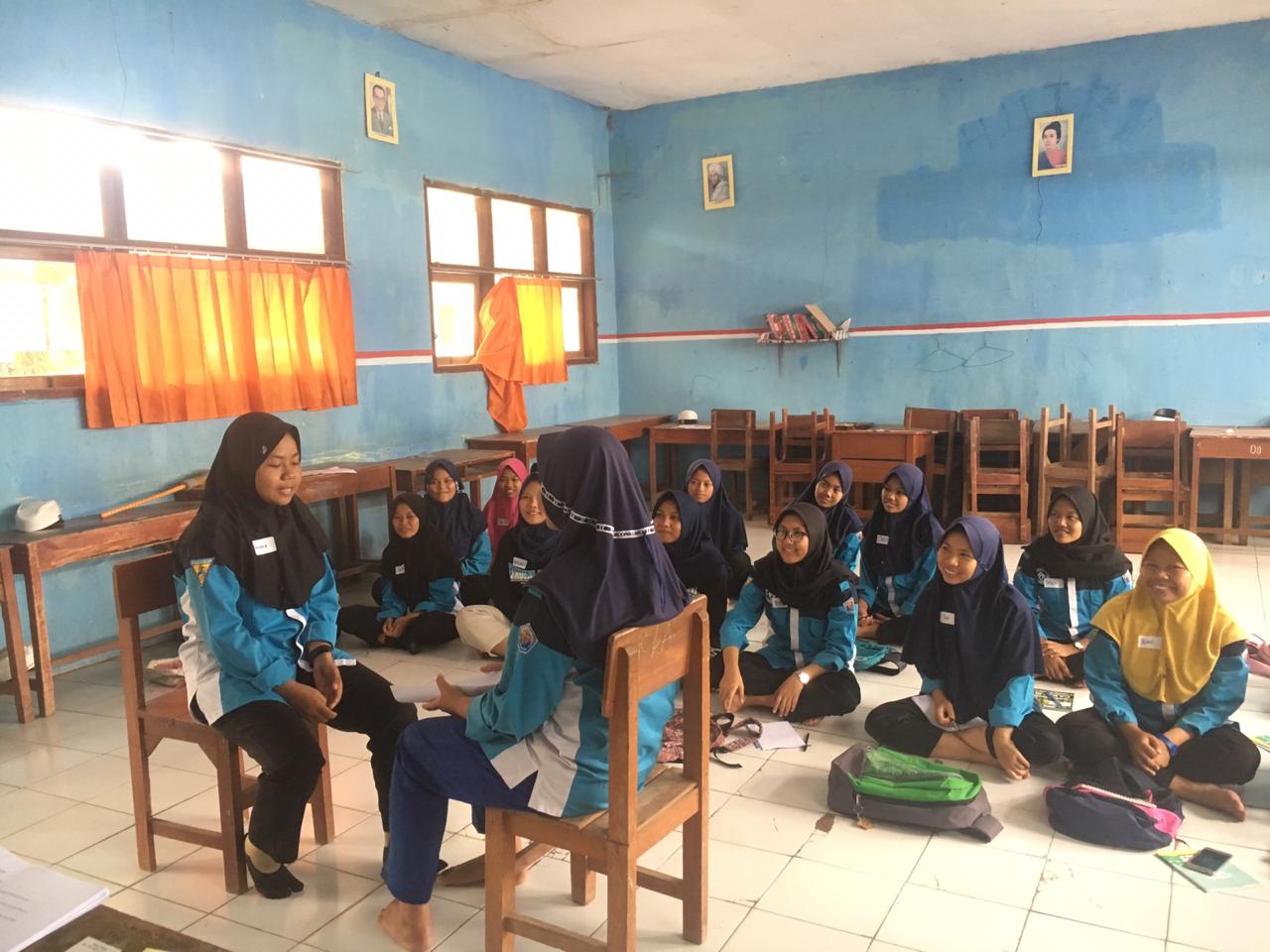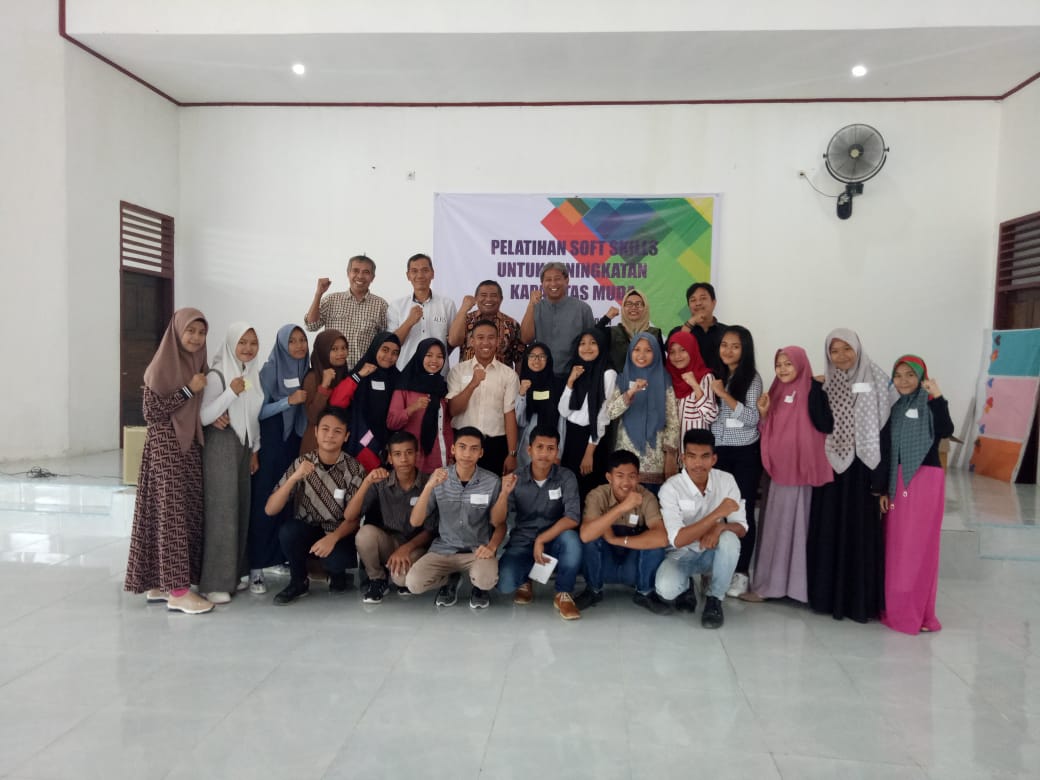Soft Skills training in Indonesia
Introduction to soft skills
Soft skills refer to a combination of social skills, communication skills, personal character traits, attitudes, career attributes, and emotional intelligence skills, among others. They are skills that enable young people to navigate their environment and voice their opinions. This is central to the trainings across the EYW program, providing youth to learn how to work well with others and achieve their goals with a positive and flexible attitude.
What kinds of training is offered?
In Indonesia, the soft skill trainings are given at Youth Hubs by the two implementing partners - IBL in West-Java and ADS in East and South-East Sulawesi. In both regions, young people benefit from topics including positive thinking, personal responsibility and empowerment, building self-confidence, effective communication, understanding emotions, and more. As these youth from different areas have different needs, ADS and IBL have offered slightly differing topics to be part of the soft skills training in each region. These trainings are based on youth needs, as well as on literature on the most important skills needed to thrive in society.
Whereas ADS is mainly targeting rural youth, IBL is more providing the soft skills training for youth enrolled in vocational schools. Youth at vocational schools often try to fin work immediately after they finish their education, and for this, soft skills can help them to link to companies for employment. After completion of the training, the young participants will receive a certificate which acknowledges their participation and newly learned skills.
Some examples of soft skills trainings offered at each Hub:
| West Java (IBL) | Sulawesi (ADS) |
|
|
In West Java, the topics of soft skills are chosen by the vocational schools themselves. One module takes around 1,5 hours to teach, and often a maximum of 2 modules are taught per day to keep the students concentrated and motivated. The pace of the training depends on the needs of the young people and the manner in which the trainer responds to this.
These new skills do not only help in employment, but also in their personal lives. Thanks to the training, young people can start to understand themselves and their social interactions with others better, which helps them improve their relationships with others. By knowing what is good and valuable to themselves, soft skills can help them navigate the future.

Results
- In Indramayu, Wesv Java, around 2500 young people obtained the soft skills training. In East and South-East Sulawesi, almost 4000 young people were trained.
- Around 20 trainers have now been trained in West Java and 150 in East and South-East Sulawesi. Every year, more young people have been trained to become trainers.
- Young people are very happy with the training. They report feeling more responsible and confident, and having better time management, self-esteem, and communication skills.
- Young women, who were shy at first, now show leadership and dare to speak in front of groups.
- In many areas, young people, including women, are now participating in community dialogues. This had never been the case before, especially in rural areas. This allows them to play a role in making decisions for themselves and their community.
- Parents and community members see the difference in their children after they have received the training. Teachers at the vocational schools say the students show more discipline, communicate better with friends and teachers, show courage, and share their opinions.
- Young people have been seen engaging in more social impact activities after soft skills training, such as beach cleanings. This can be linked to them feeling more responsibility towards their community.
- The testimonies from companies that hire trained youth are very positive. They indicate that the young people showed appropriate behavior at work and performed well.
Lessons learned
- Young people need to focus on different topics each day to keep them interested. Additionally, no more than two modules should be taught a day, and there should be enough breaks to help youth retain focus.
- The trainer plays an important role in the provision of the soft skills modules. The youths learn better if they like the teacher and have a good connection with them. The peer-to-peer training works very well, as the young people inspire each other.
- It can be difficult to keep young people motivated and convince them and their parents about the value of soft skills. At some schools, employers were invited to tell their opinions on what they think is important in an employee, including soft skills. Parents were sometimes also invited to these talks to challenge the perception that soft skills are not as relevant as technical skills.
- The soft skills training worked well, partly because they were given to youth in groups. When some young people were not motivated, their peers encouraged them, which worked better than an adult teacher taking a supervisor role.
- Providing a certificate is important for the youth as well as to them finding employment, as it legitimizes their results.
- Linking the training to schools is a good way to teach soft skills. Mobilizing participants through the school system is easier and fits better with their schedules.

Sustainability and scaling
The trained young people are engaging more and more in decision-making through the soft skills training. Many stakeholders, such as companies, vocational schools, and community members, see the added value of these types of skills. The goal is to create linkages between vocational schools and local governments and influence them to adopt these training modules. So far, circumstances including governmental budget cuts and COVID-19 have made this difficult. However, it remains a goal – IBL has already adopted the training to other areas in one of their other programs.
Due to COVID-19, it was difficult to implement the training. In many rural areas, the internet connection was not strong enough to conduct training online. Additionally, youth lose interest while having to follow the whole training online. The program adapted to this by giving the training offline in smaller groups, following the safety regulations.
To learn more about the soft skills training in the EYW project Click Here
